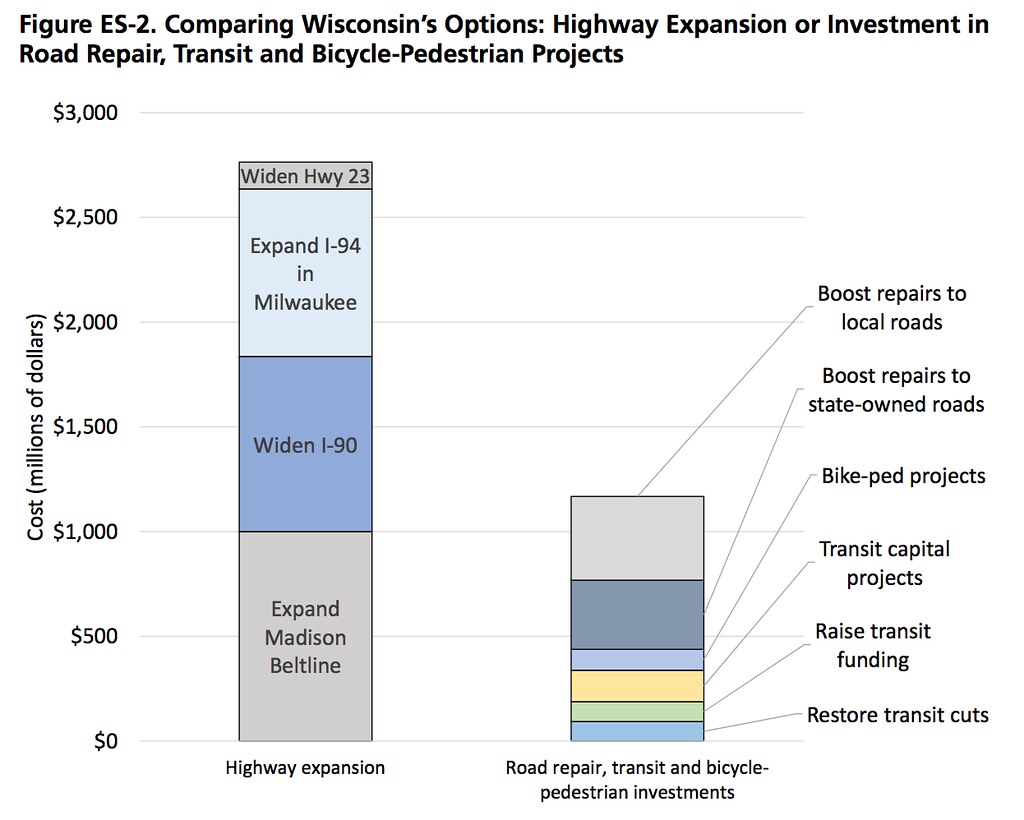
Wisconsin isn't known as a state that makes smart use of transportation dollars, whether it’s Scott Walker rejecting federal funds for high-speed rail service, denying funds for what would have been Milwaukee’s first suburban commuter rail service, or cutting millions in state aid for transit. Now a new report from the Wisconsin Public Interest Research Group (WISPIRG) sheds makes it perfectly clear just how imbalanced the state’s transportation funding priorities have gotten [PDF].
The report highlights wasteful highway expansion projects slated to cost $2.8 billion. That's on top of the $2.5 billion spent on such projects in the past two budgets. These projects would expand highways in Madison, Milwaukee, and Fond du Lac where traffic has either stagnated or dropped. Wisconsin's profligate spending on highway expansions not only diverts money from other ways of getting around, is also shortchanges maintenance of roads that already exist.
Wisconsin could afford to restore previously-cut transit funding, increase transit operations and capital funding, invest millions in bicycle and pedestrian infrastructure, and increase funding for state and local roads -- all for the next ten years -- for less than half what it plans to spend on highway expansion in the next two years alone.
Wisconsin is no stranger to lavish spending on road projects that fail to live up to projected expectations. One frequently-cited example is a four-lane rural highway bypassing the city of Burlington, population 10,508. Costing $118 million, the new road was justified by an estimated increase in traffic to the area, but a year after opening, use was 33 percent below projections. Projected traffic levels have similarly failed to transpire on at least six other road projects costing hundreds of millions of dollars.
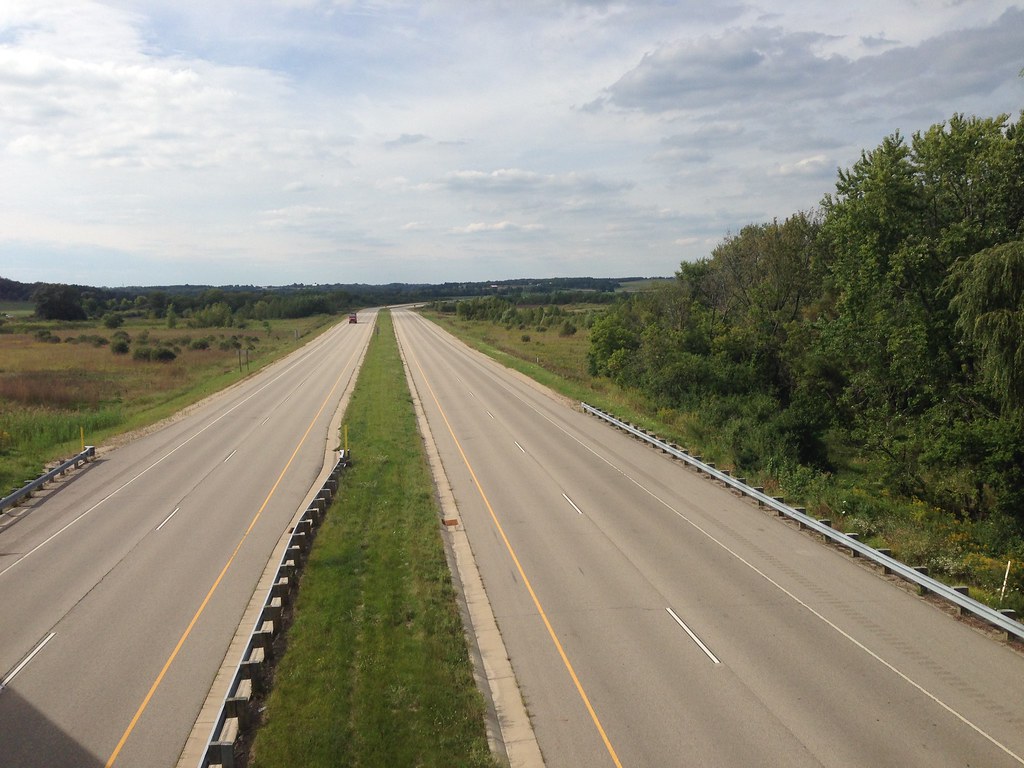
While the state spends like a drunken sailor on road projects justified by questionable projections, Wisconsin has let modest plans to make cities like Eau Claire more walkable and bikeable fall by the wayside. Cities like La Crosse, whose population has remained virtually flat since the 1990s, saw its bus ridership nearly double between 1997 and 2013 -- a trend not uncommon in other medium-sized cities throughout the state. In the same period, vehicle miles traveled (VMT) have fallen in both real and population-adjusted terms.
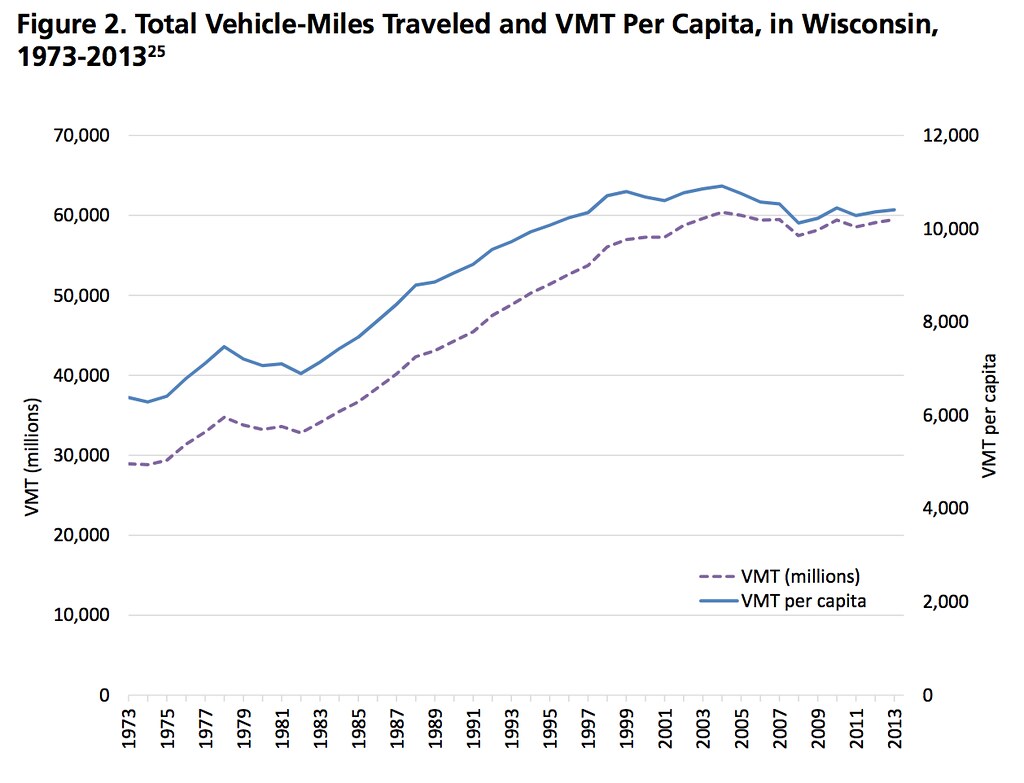
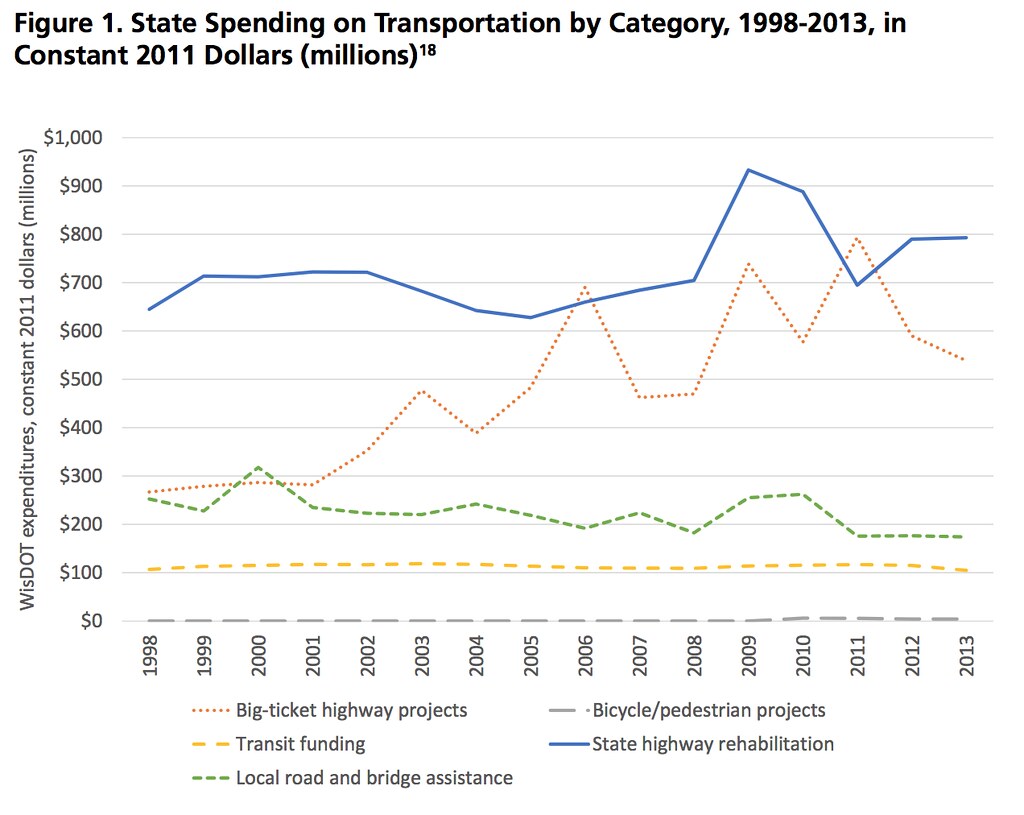
Further encouraging expansion and new construction of highways, the state Department of Transportation has failed to consider the least expensive or intrusive proposals when faced with the need to repair roads. Interstate 94 west of Milwaukee is one example: a 2.85-mile long stretch of the aging freeway would cost $370 million to rebuild as it exists today, but adding lanes or double-decking the freeway -- the only two options WisDOT is still considering -- could cost as much as $1.2 billion.
Absent from such plans are provisions that could reduce traffic instead of increasing road space, such as HOV lanes or adding transit service. In all cases, WISPIRG’s report calls on WisDOT to reexamine its traffic projections and investigate all alternatives to widening roads.
The report also encourages a “Fix-it First” approach. With 71 percent of roads rated “mediocre” or “poor quality” and 8 percent of bridges classified as “structurally deficient,” Wisconsin can’t afford new roads to maintain while leaving others to crumble. “Politicians love ribbon cuttings,” says Bruce Speight, WISPIRG Foundation Director, but “rather than squander tax dollars on overbuilding highways, let’s prioritize the repair and maintenance of our existing infrastructure and the transit and bike improvements that we need.”
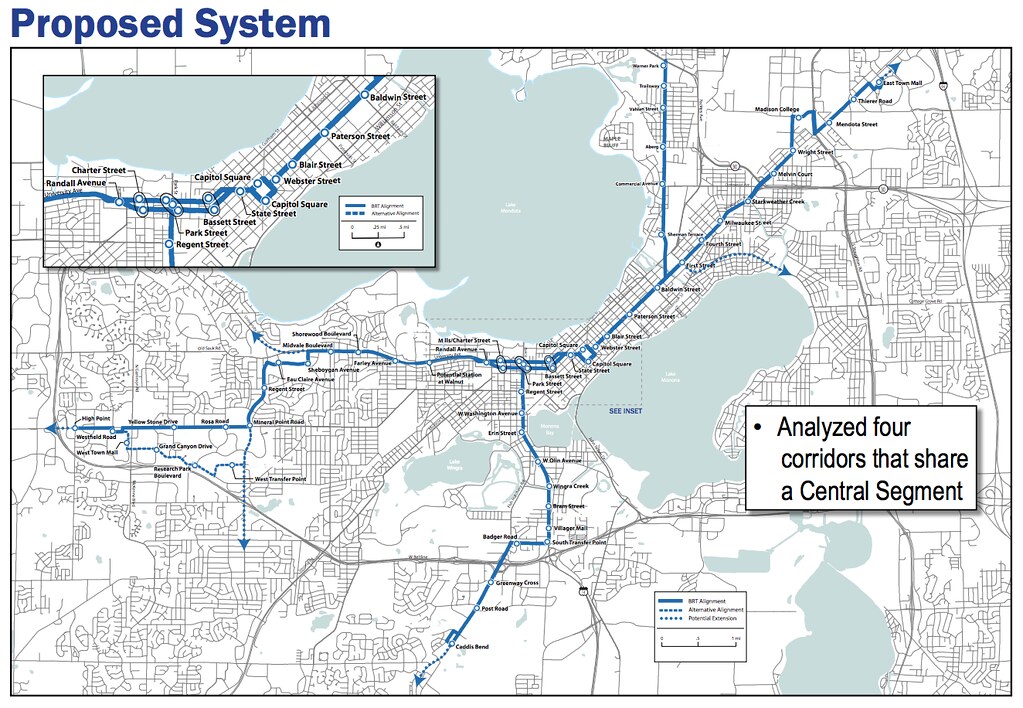
Wisconsin should also focus on investing in 21st century transportation infrastructure so it doesn’t lose out in a future where driving continues to decline as the public shifts toward other modes of travel. This means bringing infrastructure like bus rapid transit to its cities, a steady stream of funding dedicated for bicycle and pedestrian projects, and strengthening funding for existing transit agencies. The state government should also permit local municipalities -- who have no power to raise their own taxes -- to come together and once again form regional transportation authorities that can better manage their transportation needs.
In short, continued roadway expansion will only leave Wisconsinites on the hook for future maintenance -- and without more environmentally friendly, economical, efficient transportation options.





